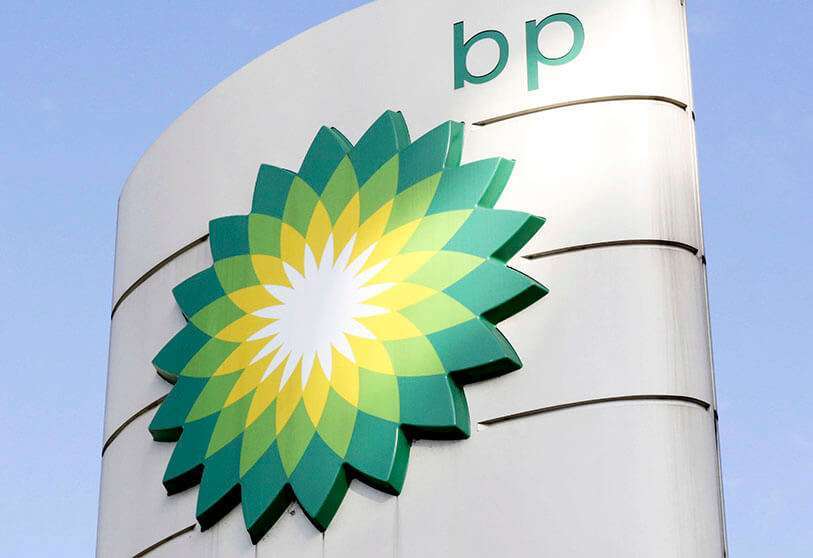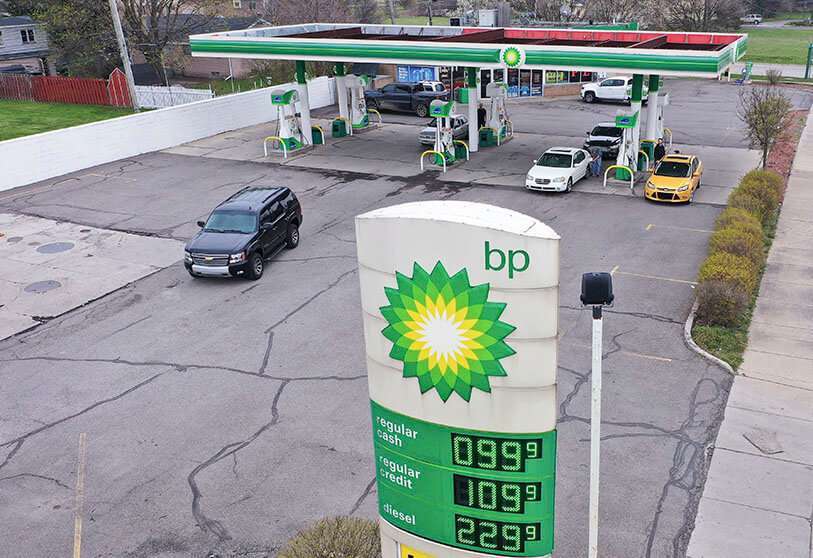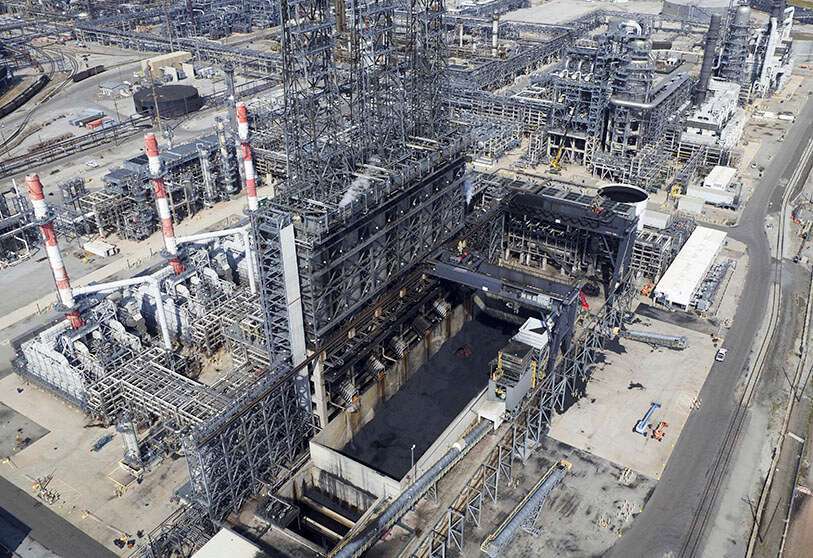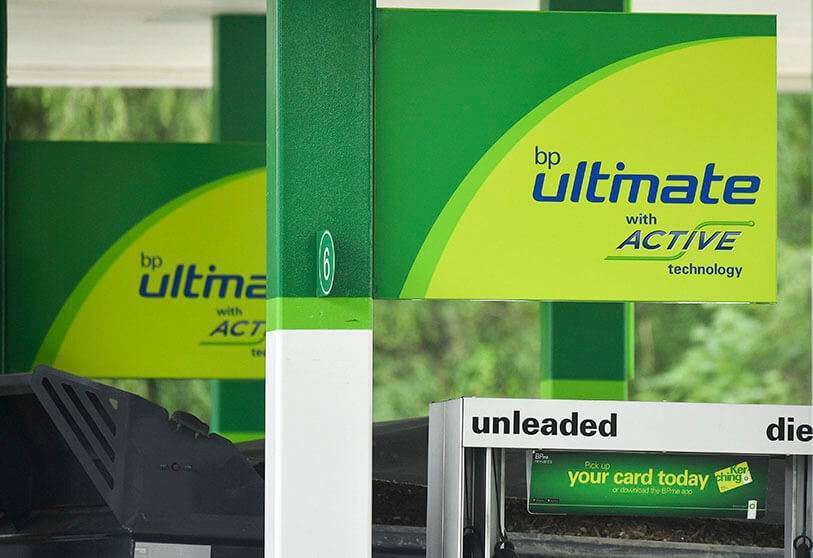Luis Aires: "Oil and gas companies will be transformed into multi-energy and multi-service companies"

The president of BP Spain, Luis Aires, was interviewed on the seventh program of Atalayar on Capital Radio, which was broadcast this Monday from 10:05 p.m. to 11:00 p.m. President also of the Association of Oil Operators, he discussed about the impact of the coronavirus pandemic in the oil sector, at a national and global level. COVID-19 caused the WTI oil barrel to trade for the first time in negative on Monday, April 20, 2020.

How has the activity of the oil sector been in the last three months?
This last trimester has been very busy in the sector. We have had the perfect storm', which is the combination, on the one hand, of the OPEC countries and Russia, which at the beginning of the year increased their production quotas, so that the price of the barrel was falling during the months of January and February - at the beginning of January it was around 70 dollars per barrel and at the end of February it was around 55. When the pandemic came, then the demand crisis broke out, and the price fell sharply, to below $20 a barrel. Thus, we have had excess production and cut demand.
Is the situation now, with the reopening of the economies, returning to normal?
We're seeing it now in the barrel prices. We're already around $40 a barrel. This is a consequence of the production cuts announced by OPEC and also by Russia and of the economic recovery that has already started and that is going to take great steps, especially taking into account the impacts on mobility. In Spain, we are talking about a 5% recovery in demand per week, although it is true that we are starting from a very low base. In the first half of April, we had lost 80% of the demand, that is, we were selling 20% of what we sold last year. That 20% is now recovering at a rate of almost 5% per week as mobility restrictions are lifted and economic activity recovers.
What factors influenced what happened in the world oil market in the first weeks of the lockdown?
It was a combination of several elements. On the one hand, the excess supply from OPEC countries, which were trying to push the United States' competitors, that is, those companies dedicated to extracting oil through the Fracking, with a price per barrel very much in line with the Fracking's exploration costs. On the other hand, the arrival of the pandemic caused oil prices to fall to levels where the first losers were the OPEC countries and Russia. From there, the readjustments in the production levels, so that prices return to the most normal path, between 30 and 50 dollars per barrel, something that we can expect for the next months.

What would happen if there was a major outbreak of the pandemic?
Much will depend on how countries deal with a possible resurgence. Measures that restrict mobility have an immediate effect on energy demand. On the other hand, if they are outbreaks that can be managed through mass diagnostic tests, the medical system and social distance -without the need to limit movement-, the effect on the demand for oil products may not be as big.
Do you think fossil fuel consumption will die in 20 years' time?
Most likely, due to the efficiency of internal combustion engines, these engines will demand less and less liquid fuels, and these liquid fuels will in turn have a smaller carbon footprint. Companies in the sector are currently investing in technologies that allow us to reduce the emissions from our factories and the carbon content of the products we are producing. In other words, liquid fuels will still be in demand in 20 years' time, but they will be liquid fuels that will have a smaller carbon footprint.
Another factor that is going to play an important role in the future is that there are other technologies that are going to be competing with the internal combustion engine, and that are going to produce a certain degree of replacement of internal combustion engines by other types of technology, such as electric vehicles. At the moment, they represent a very small percentage of total car sales in our country and, as a result of the pandemic, they will still take some time to be reactivated, but, undoubtedly, as this technology is developed, costs are reduced and batteries last longer, the demand for these vehicles will increase, leading to a progressive decrease in liquid fuels.
In short, in 20 years' time there will still be a demand for liquid fuels, but in lower quantities than those demanded today.
Do you have any options for hydrogen and gas?
Hydrogen-powered vehicles are an alternative that needs to be looked at very closely and companies are investigating it. Where can hydrogen have a big ride? For example, in heavy road transport. When it comes to covering many miles with a heavy load, the electric motor can be less competitive. Hydrogen will undoubtedly play a key role in the energy transition.

What do you think of the Plan Renove 2020 announced by the Government for the automotive sector?
It is good news that combustion vehicles are included. There is technological uncertainty, because most of the new technologies we have mentioned are incipient and not competitive from the point of view of efficiency. That is why we, from the sector, advocate what we have called technology neutrality', in other words, let the different technologies compete with each other, so that those that are most efficient are the ones that succeed and in the end make the energy transition as efficient as possible for the consumer.
In February of last year, BP announced a plan to become a zero emissions company in 2050. How does the pandemic affect that strategy?
The plan is reinforced. What is happening in the world tells us that our ambition to become a zero emission company by 2050 and help the planet to decarbonize is even more important. We believe that global oil demand may already be reaching its peak, so it will start to fall. That is why we want to work on a gradual evolution to invest in new technologies, although we will continue to extract hydrocarbons from the planet, because they will still be needed for some decades, but we believe that it is possible to decarbonize those hydrocarbons, because there are technologies already available that would allow us to do so. And at the same time, we are going to be investing in other types of technologies such as the production of renewable electricity, the economy around hydrogen or being able to extract energy from solid urban waste, which will allow us to completely reinvent the world of energy.
Does this include gas stations?
Service stations will have to adapt to a new mobility, where the demand for petrol and diesel will decrease over time. We will have to gradually install electric charging, because we think that the service station should allow a fast or super fast electric charge, comparable to the current gasoline and diesel charging time. In addition, the best place for hydrogen recharging, in the case of heavy transport, will be a service station.
The forms of mobility are going to change in the future, and companies are going to transform themselves to offer this type of new services. Over time, we will move away from traditional categorization to become multi-energy, multi-service companies around the mobility.

About the Fracking, would it be possible to implement it in Spain?
It is very unlikely that fracking will be profitable in a country with the geology of Spain, and which also does not have traditional oil and gas exploration. Fracking is profitable in those sites where there are large amounts of unconventional oil and gas and which are typically associated with what would be traditional oil and gas reservoirs. These conditions are not present in Spain. We don't have an industry around this kind of activity. From an economic point of view, it would not be profitable.
In the Mediterranean, we have the conflict in Libya with foreign interventions that destabilise the region. Is there any concern about this situation, considering that it is a country rich in oil and gas?
We have to take into account that a few years ago there was a revolution that affected the sector, including my company, and we had to leave the country. The impact of the conflict in Libya, or in any other country in the region, is currently greatly minimised by oversupply. Oil reserves at the moment are more than double the demand that will exist between now and 2050. And with the development of technology, they will be more than three times the expected demand. We can't be afraid of running out of oil or gas. The quantities stored are so enormous and technological development is advancing so rapidly that the risk of shortage due to conflict in a given country does not exist. What it can have is a one-off effect on the price of oil and gas until other countries compensate for the lack of stability in that particular market. We are at a point where not all the oil or gas under the ground is going to be used.








